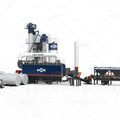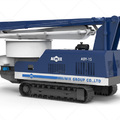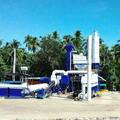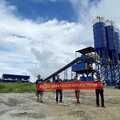In the fast-paced and competitive construction industry, efficiency and precision are key to maintaining an edge. As the UK construction sector continues to grow, companies are increasingly turning to automated concrete batching plants to streamline operations, enhance product quality, and reduce costs. With smart technology making its mark on various industries, concrete batching plants UK are no exception, embracing automation to meet the evolving needs of the market.
The Rise of Automation in Concrete Batching Plants
Concrete batching plants are essential for large-scale construction projects, providing consistent and high-quality concrete mixes. Traditionally, these plants required manual control, involving operators who managed the mixing, weighing, and delivery of materials. However, the advent of automation has revolutionized the way these plants operate.
Automation in concrete batching plants involves the integration of advanced technologies such as IoT (Internet of Things), AI (Artificial Intelligence), cloud computing, and machine learning to automate various processes, reduce human intervention, and enhance operational efficiency.
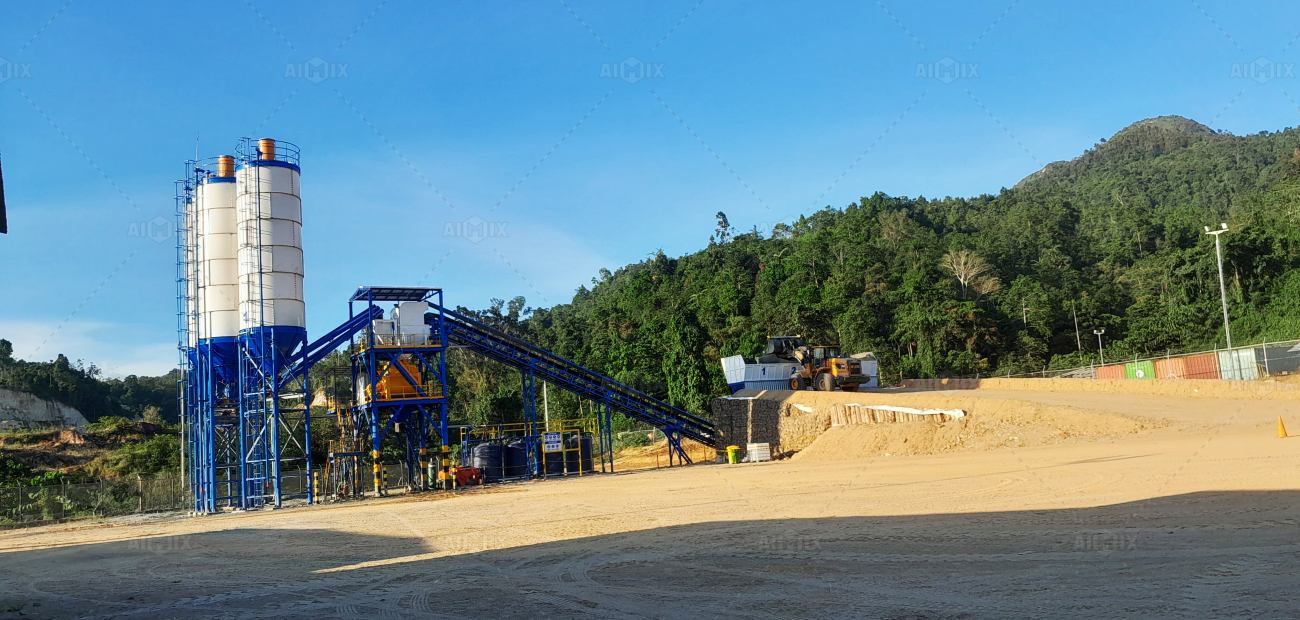
Key Benefits of Automation in Concrete Batching Plants
1. Enhanced Efficiency and Productivity
One of the most significant advantages of automating a concrete batching plant is the increase in efficiency. Automation allows for the continuous and precise mixing of concrete with minimal downtime. Automated batching systems ensure that materials are mixed according to exact specifications, without the need for human intervention. This speeds up production cycles, enabling plants to deliver concrete faster and in larger quantities.
In the UK, where large-scale infrastructure projects are common, this improvement in efficiency is particularly valuable. Construction deadlines are often tight, and automated systems help meet those deadlines by reducing delays caused by human error or manual processes.
2. Consistency and Quality Control
In construction, concrete quality is paramount, as inconsistencies can lead to significant structural issues. Automation guarantees consistent concrete mixes, as every batch is produced according to precise formulas. Advanced weighing systems and batching software automatically adjust quantities and ensure the correct proportions of materials are used, resulting in high-quality concrete every time.
For UK companies, particularly those working on projects like highways, bridges, and commercial buildings, quality control is crucial. Automated systems eliminate variations in mix design and ensure the concrete meets industry standards and building regulations, reducing the likelihood of costly rework or project delays.
3. Cost Savings and Reduced Labor Requirements
Though the initial investment in automated systems may seem high, over time, they lead to significant cost savings. By automating processes, batching plants can reduce labor costs, as fewer operators are needed for day-to-day tasks. Additionally, automation reduces the likelihood of errors that result in material wastage, further decreasing operating costs of batching plant.
In the UK, where the cost of skilled labor can be high, companies are increasingly adopting automation to lower expenses. Labor shortages in the construction industry are also a driving force behind this shift, as automated systems help mitigate the challenges of recruiting and training skilled workers.
4. Improved Data Collection and Analysis
Modern automated batching plants come equipped with sophisticated software that collects and analyzes data in real time. This data provides valuable insights into plant performance, including production rates, material usage, and energy consumption.
For UK companies, this data is a game-changer, allowing for the optimization of operations. Operators can monitor the plant remotely and identify inefficiencies or areas for improvement. Furthermore, the data can be used for predictive maintenance, where AI algorithms analyze equipment performance and predict when maintenance is needed, reducing downtime and extending the life of the plant.
5. Environmental Sustainability
As sustainability becomes an increasingly important focus for industries worldwide, automated concrete batching plants in the UK are embracing green technologies. Automation helps plants optimize material usage, reducing waste and minimizing the carbon footprint associated with concrete production. Additionally, automated systems can monitor and control energy usage, ensuring that resources are used efficiently.
The integration of recyclable materials and eco-friendly admixtures into the batching process is also more easily controlled with automation. This is particularly important in the UK, where there is a growing emphasis on sustainable construction practices and compliance with environmental regulations.
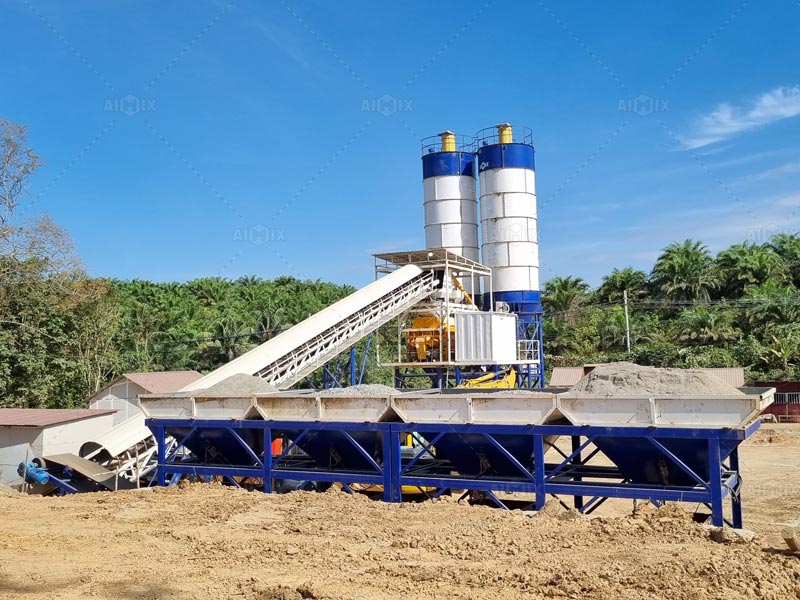
Examples of Automation in UK Concrete Batching Plants
1. Cloud-Based Monitoring Systems
One of the most significant innovations in UK concrete batching plants is the use of cloud-based monitoring systems. These systems allow plant operators to access real-time data from anywhere, enabling them to make informed decisions quickly. For example, mobile apps and web platforms can display key metrics such as material usage, batch quality, and system status, helping operators optimize performance without being physically present at the plant.
2. AI and Machine Learning for Predictive Maintenance
Another cutting-edge technology being used in the UK is the integration of AI and machine learning for predictive maintenance. By monitoring equipment performance and using algorithms to detect patterns, automated batching plants can predict when a piece of equipment is likely to fail. This proactive approach to maintenance reduces downtime, cuts repair costs, and ensures the plant operates at maximum capacity.
3. Automated Concrete Mixers and Delivery Systems
Some UK companies have also adopted automated concrete mixers and delivery systems, allowing for better control of concrete transportation. These systems can adjust the speed and route of delivery trucks based on real-time traffic data, ensuring that the concrete reaches the construction site in optimal condition. This just-in-time delivery system reduces waiting times and improves efficiency, particularly in high-demand projects.
Conclusion
Automation in concrete batching plants is transforming the UK construction industry, offering benefits such as increased efficiency, consistent quality, cost savings, and environmental sustainability. As UK companies embrace smart technology, they are not only improving their operations but also gaining a competitive edge in an increasingly demanding market. By investing in automated systems, these companies can meet the growing demand for high-quality concrete while navigating the challenges of modern construction projects.
For UK businesses looking to stay ahead of the curve, adopting automation in concrete batching plants is no longer just an option—it’s a necessity.

